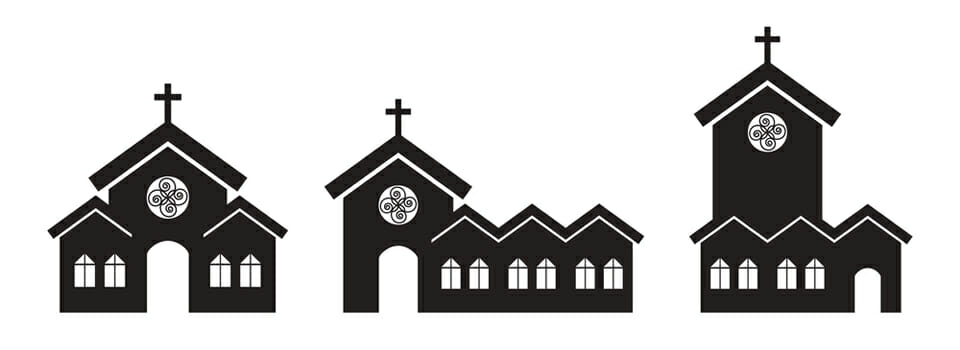In the American religious landscape, there is no clear path for an individual to become an Executive Pastor. Whether a man or woman comes from the executive or church world, there are a variety of paths to the role of XP. Some churches have hired or promoted individuals to become Executive Pastors who have experience in only one or two areas of ministry. Their native talent, or combination of talent, experience and training have qualified them for the position. There is some on-the-job-training with this process, but the individual already has learned the inherent skills required for church ministry. This case study on Stacey Campbell illustrates how one person followed this route to becoming an Executive Pastor.
What are some of the “pastoral” components in the XP role? Stacey gives some insight from a recent ministry experience:
It’s never a good sign when one of your elders calls on a Sunday night at 9:30 p.m. This was no exception.
“Are you sitting down?” he asked over the phone. “We’ve got a situation.”
“What is it?” I asked, my mouth suddenly dry.
“I just received a call from someone in our church who says that they were coerced into having a sexual encounter with someone else in a restroom at our church during one of the worship gatherings this morning.”
As my brain played catch-up to this revelation, I couldn’t help but notice a new question that had slammed into my head: Exactly why did I want to be an Executive Pastor?
This case study will help one understand how a person moves from Pastor to Executive Pastor. What were the elements and experiences that brought Stacey Campbell to this phone call?
Education in the Classroom and Church
Stacey entered Colorado Christian University to pursue a career in Christian Counseling. Having worked both in front of and behind the cameras in television commercials for a period of time, he desired to be on the “people side, the ministry piece” of life. Studying under Larry Crabb, Stacey received a Masters of Arts in Biblical Counseling.
While studying for his Masters degree, Stacey did not continue to feel the pull into full time Christian counseling. Joining a small group of friends, they began to plant a church. Stacey worked on the artistic and creative aspects of the emerging church. After four years, Stacey felt it was time to move on from the church plant. He took a position with a church in Florida for the next four years. The change in church environments could not have been more pronounced: from a small, new church, clinging to its existence month-by-month to a very wealthy and established church, in the midst of an identity crisis. Moving from a very fluid and creative environment to a more “machine-like” environment educated Stacey in the subtleties of church politics. Naiveté had to quickly become a thing of the past. In the interview, Stacey mentioned his report from the Myers-Briggs Type Indicator. He is an ENFJ (Extroverted, Intuitive, Feeling, Judging) type. Both once-over paragraphs and details of this type seems to fit Stacey.
As a Pastor of Small Groups and Discipleship in Florida, Stacey was introduced to the role of the Executive Pastor. “I saw some guys that I did not want to be like. I saw XPs who were as clear as scientists, rigid, set managers. They were strictly pragmatic, bottom line and stifling people and ministry. They were high control and by the book, not releasing people into ministry. The model was a managerial model, with “I told you what to do, now do it. Everything had to funnel through the XP. I never wanted to be an XP if they were the role models for XPs.”
Stacey describes the Florida ministry as a significant pilgrimage in his life. “It was a rough go for me. The church wasn’t a great fit with my style, yet I knew I was supposed to stay in ministry. I knew I was supposed to stay in Florida until God said it was time to leave.” Like many pastors, Stacey was learning that though a particular church may be a challenging place to work, that there are life lessons to be learned at that place. In four years, Stacey was learning those life lessons.
In his four years in Florida, Stacey identified three values that would become central for his life. Stacey summarizes the ministry style that he learned was “mine, me, who Stacey Campbell was and is and will be.” The first thing that he identified as a core value was, “I don’t believe in cookie cutter ministry, those things or programs where everything is the same.” Stacey came to realize that he believed in diversity, of people using their gifts and abilities in different ways to serve Christ in the church. “The cookie cutter mentality for me is not pastoral.” Stacey discovered that his pastoral and counseling gifts really were a part of his core identity in ministry. He wanted to shepherd people and allow them to grow.
The second core value that Stacey discovered, or reaffirmed, while in Florida was a strong theological view of the world. He saw the world as a pastor sees the world. The grid was a biblical worldview of Christ working through His church to reach the world. Christ works both through the church collective and distributive, that is when it gathers and when the people of the church go out to their neighborhoods. “I am not here to get the people of the church to rally around my ideas and desires; instead, I’m here to help facilitate whatever God has put on the hearts of His people so that those ideas and desires are released into the world.”
The third core value that Stacey identified is that he wanted to blend the Poet and Artist in his life. The Poet is one who comprehends and explains life through metaphor, using the rich fabric of symbolic language to express spiritual reality. The Artist takes those symbols and gives them life in the three dimensional world. Stacey found he did not want to be a person who “sees people as they appear to be, but sees people as they could be or should be, or sees people as God sees them.” The Poet and Artist see beyond the apparent present reality to a spiritual dimension of possibility and growth. If this sounds a little mystical, then the reader is reading this correctly. There is a degree of mysticism, as this word can be defined as: “(1) Immediate consciousness of the transcendent or ultimate reality of God, (2) a belief in the existence of realities beyond perceptual or intellectual apprehension that are central to being and directly accessible by subjective experience, and (3) vague, groundless speculation. Of course, some people both inside and outside the church see anything mystical as the third definition—vague, groundless speculation. The Poet and Artist though, sees things not as they are, but as God desires them to be.
Of course, the act of writing about a Poet/Artist is a challenge. By definition, the Poet/Artist is harder to quantify in the printed word. When change and diversity are key concepts, it is difficult to explain one’s core values. Stacey himself feels this tension, “even with my gifts in writing, it is a challenge to describe ‘me’ and my role in the church.” This is in keeping with Stacey’s Myers-Briggs Profile as an ENFJ.
Thus, through a difficult four years in Florida, Stacey identified three core values: Anticookie cutter, Pastor/Theologian, and Poet/Artists. Stacey’s education can be broken into two parts—the formal one that produced a degree and the on-the-job-training that produced core values. Stacey’s Masters degree took an accelerated twelve months and his “ministry level masters degree” took several years.
About the City of Greeley
Christ Community Church of Greeley, Colorado is an Evangelical Free Church, founded in 1899. The city is named after Horace Greeley, editor of the New York Tribune. A settlement called Union Colony was founded in 1870 by Nathan Meeker, agricultural editor of the New York Tribune. Since the church dates from the early days of the city, it would do well to understand the city:
The fledgling town of 1,200 was founded in 1870 by members of a joint stock colonization company called the Union Colony of Colorado, organized by Nathan Meeker, agricultural editor of Horace Greeley’s New York Tribune. Meeker visited Colorado Territory in October, 1869, and his observations on the people and places in the West were published in the Tribune. Meeker was smitten with the Rocky Mountain scenery, the energy and friendliness of its citizens, and the opportunity to inexpensively purchase or homestead fertile tracts of land in a climate renowned for its pure air, moderate temperatures and “perpetual” sunshine. His dream of starting a utopian community based on temperance, religion, education, agriculture, irrigation, cooperation, and family values was rekindled. He penned an appealing article, “A Western Colony” for the Tribune’s December 14, 1869 edition, in which he encouraged literate and temperance individuals with high moral standards and money to join him in a colony venture in Colorado Territory.
More than 3,000 responded to his persuasive prose. Over 700 of the best applicants were chosen as members, and a membership fee of $155 was collected from everyone whose name appeared on the list of selected colonists. This money was used to purchase land west of the confluence of the South Platte and Cache la Poudre Rivers. Some colonists were investors only; ninety had “second thoughts” and requested the colony “refund” their membership fees, but the majority settled on a new life in Greeley, C.T. They were a homogenous lot: white, Anglo-Saxon, Protestant, thrifty, conservative, hard-working, Union veterans, predominantly Republican, and committed to Nathan Meeker’s vision. They built two ditches and an expensive fence around the Colony to keep the open range cattle from destroying newly planted gardens and crops. Residences, businesses, schools, churches, hotels, buffalo-tanning factories, flour mills, produce warehouses and opera houses sprang up between 1870 and 1885. The colonists negotiated with the railroad for equitable rates to ship their famous Greeley spuds to market, “electrified” the downtown in 1886, installed telephones in 1893, and expanded the network of irrigation ditches and reservoirs for greater crop production and diversity. They survived the locust plaques and blizzards of the 1870s, the boom in businesses and more blizzards of the 1880’s and the depression of the 1890s.
In 2005, the city population was over 100,000. According to the latest statistics, Greeley and its surrounding area is the fastest growing county in the United States.
History and Doctrine
This case study examines the role of “Pastor to Executive Pastor.” For this reason, it would do well to understand the pastoral flavor, the theological views and practices of the church. Currently, Christ Community Church of Greeley has a 900-seat worship center with over 1,500 in worship each week. For seven years, the church had a Thursday night worship service, as well as two Sunday morning worship services. At the beginning of 2005, the church moved the Thursday night service to Saturday night.
While those statistics are current for 2006, the church has a long and varied history. It would be best for the church to speak for itself about its history:
During the late 1800’s, a number of Scandinavian families moved to northern Colorado by horse and wagon with dreams of making a better life. Many were Christians who desired Bible study, prayer, and fellowship with other believers. Since these mostly Swedish families were spread out across the Greeley and Eaton area, the best way for them to get together was in each other’s homes. So they began various Bible study groups in several areas. In 1899, a Sunday school was started in Greeley with preaching services on Sunday afternoons and evenings, all in Swedish.
As these services continued and attendance steadily increased, a more suitable building was needed. In the year 1900, a small brick church was built on 11th St. near 10th Ave. On December 28, 1901, the eighteen members became known as The Swedish Free Mission Church of Greeley, Colorado. Soon after realizing they needed a full-time pastor, the church hired Rev. A. A. Anderson to serve in that capacity.
Since the church’s beginning, the Swedish language was used for all services and record keeping until the late 1920’s, when it finally became necessary to switch to English. The vote was much debated but it was agreed that since the young people didn’t know Swedish, the English language should be used. The name of the church was changed to Evangelical Free Church in May of 1936.
During the 1930’s and 40’s the church continued to grow and the need for a larger building was once again a necessity. In 1944, property was purchased at 13th Ave. and 15th St. with the congregation and church leaders unsure of when the building process could begin. Two years later, construction began on our current facility. Devoted members and friends of the congregation worked for three years to complete the construction by spring of 1949.
In the 1950’s, the church heavily influenced the students at UNC (University of Northern Colorado, ed.) by teaching on the relationship between athletics and Christianity. Mission conferences were especially important as they educated the congregation and students from Cameron Elementary about mission work that was happening around the world. During the 1970’s, the choir performed many productions and even recorded two albums. The next decade brought even more advances: a children’s program that helped kids learn the Bible called Awana; free oil changes for single women; and a clothing bank for those in need.
The Nineties brought a new passion and spirit of renewal to this church. Within a few years, a new purpose statement was adopted and in 1994, the name of the church was changed to Christ Community Church. To facilitate the numerical growth, a second Sunday morning service was added in 1995, and two years later, a third serve began on Thursday night.
The growth continued and it soon became evident that our current facility would not be large enough. After much prayer and discussion concerning various options, the elders sense the Lord’s clear leading that Christ Community Church should stay at the corner of 13th Ave. and 15th St. and expand from there. So in the fall of 1997, we began the process of purchasing the five homes north of our facility and in the fall of 2001, we began construction of an adjacent facility which includes a 900-seat worship center, a large lobby and a larger area for our Tiny Tots ministry. The new facility was open February 23, 2003.
Reaching out to the community has always been a high priority over the hundred years of our church’s ministry in Greeley. One of the ways that we are continuing this priority is through Project Serve events. These free events are practical ways of saying God loves you—no strings attached. Every Fourth of July, teams of people give away to parade attenders free orange juice along with a card of information about Christ Community. In December, over 400 church volunteers wrap several thousand Christmas gifts for free at the Greeley Mall. We also sponsor a free single mom’s oil change every few months. Kid’s Hope is a ministry that pairs up at-risk students from Cameron Elementary with loving tutors from Christ Community Church. Christ Community is also involved in Room-at-the-Inn, a network of churches that helps house homeless families.
We also minister to people around the world. We have adopted an unreachable people group in South Asia and have sent many prayer teams to pray on site. The church has also sponsored many short-term missionaries. Currently, nearly thirty missionary families in the U.S. and around the world receive prayer and financial support from this congregation. Over $100,000 per year is given to outreach, locally as well as globally.
There is no way of knowing exactly how many people have been touched as a result of the various ministries started by this church since 1901. But what we do know is God is faithful and He has carried us through times of growth, challenge, weakness, and uncertainty over the last one hundred years. He has seen the church survive through national crises and wars and has seen it grow from eighteen people to a thousand. He has seen a community of his people reaching out to serve one another. We give all glory to God, for the work he has carried out through the generations past and present. We thank him for our great heritage and praise him for the lives that He has changed through this church. As we look ahead to the next one hundred years, may we never lose sight of the one who has brought us together to do his work—to help as many people as possible experience the fullness of a relationship with Christ.
The church asserts that “the doctrinal position of The Evangelical Free Church of America is summarized in our twelve-article Statement of Faith.” Also, the church has developed ten core values which are a part of its spiritual DNA (see PDF below).
In contrast to the relational style of the ministry, the Constitution and Bylaws of the church are formal, lengthy and weigh-in at twenty-seven single-spaced pages. The document, updated in 2001, is different from some church constitutions as it is contains a great deal of legal language. The document contains many formal mechanisms, such as indemnification, collecting minutes and voting by proxy. These things are rare in church constitutions.
These various aspects of history, doctrine and constitution, combine in Christ Community Church of Greeley, Colorado. One finds a church with a hundred year history, rich in tradition and ready to face the future.
The Kingdom of God at Christ Community
Christ Community Church sees itself at a vibrant stage of church life. The church has a full compliment of ministry. Some of the ministries include—Early Childhood ministries, “Kid’s Konnection” (kindergarten-5th grade), “The Underground” (Middle School Ministry), Senior High Ministries, Soul Care ministries (Divorce Care, LivingFree ministries (addictions and compulsions), Grief Share, Post-Abortion Support, Bridges (infertility and pregnancy issues), Every Man’s Battle (sexual issues), Women’s H.O.P.E. (sexual issues), Parents of Teens, Pre-Marital Mentoring, Titus 2 (women mentoring), Hospital Ministry, Common Sense Stewardship Ministry and Meal Ministry.
The style of ministry is different from many churches. In reference to the organization of the website, Senior Pastor Alan Kraft writes that “we have a few core areas that provide our north star for this journey. Each of these are areas in which we are very intentional about growing.” He then immediately lists the following four areas—worded in a distinctive manner:
The Romance of God refers to our desire to grow in a real, love relationship with God through experiencing Him in worship, communicating with Him in prayer and learning more about Him through interacting with His Word.
The Connection of Family refers to our desire to help people experience real, caring relationship with others. We have a wide variety of mid and small sized groups designed for this purpose which will fit your life situation and time schedule.
The Gift of Service refers to our desire to help people make a difference in the lives of others by discovering the unique spiritual gifts God has given them and finding a place to use those gifts.
The Fragrance of Christ refers to our desire to sensitively and powerfully communicate the wonderful message of God’s love demonstrated in Jesus Christ.
In a post-modern fashion, there is an “ancient-modern” feel to the strategy statement.
Like many active churches, Christ Community receives its share of ink in the local newspaper. A baseball outreach clinic, held at the University of Northern Colorado, was spearheaded by former Eaton first baseman Matt Hagen. Another article highlights the partnership between the church and Cameron Elementary School in Greeley, focusing on a carnival for kids and the tutoring program called “Kids Hope.” The tutoring program involves fifty-five church members who are paired with Cameron students.
Most importantly in terms of newspaper coverage, the church was highlighted in an article on Generation X and post-modern worship. The article asserts that: “Christ Community Church in Greeley never set out to be a postmodern church. In fact, a 900-seat worship center seems to oppose the small, intimate settings of community-based postmodern churches. But in many ways its services are postmodern, said Pastor Alan Kraft. And, 30 percent to 40 percent of their membership are twentysomethings to early 30s.” The style of the church is captured in the article: “People can push the boundaries and not feel like they are being judged, said Phil Grizzle, Young Adults pastor. There is no top-down model lecture. Everybody here is on a journey with God, the pastor said, and that is a message that resonates with young people.” The focus on Christ Community concludes with a quote from the Senior Pastor: “We didn’t do that as a way to get young people here. It’s just the way I view the spiritual life.”
Even with all these programs and activities, the church is embarking on a bold new initiative. Senior Pastor Alan Kraft has written, “we have been growing in our understanding of the kingdom of God as both a life-changing and world-impacting reality.” The Senior Pastor introduced the project during the three weekend services. “Project Beyond is a 4 million dollar stewardship journey over the next three years—a journey in which half of that four million dollars will be used to reduce in a significant way our current mortgage debt, and the other half will go toward strategic kingdom initiatives around the world.”
Christ Community has a current indebtedness of $4.1 million. Yet, they chose to not do a fundraising campaign to completely eliminate their indebtedness. Instead, their plan will reduce their mortgage by one-half and the other half will go to their PEACE plan. Further, they are careful to add in their literature that they have a long term goal of bring strategically positioned for future ministry expansion. The church leadership is straight forward with the congregation about future growth. If fully raised, the other half, $2 million, will go to the five areas of their PEACE Plan.
The “P” stands for Planting Churches. They want to plant a self-sufficient and reproducing Hispanic church in Greeley. They will launch a church planting initiative in the mideast by training nationals with the assistance of Global Missions Fellowship. They will plant a thriving church in a Muslim area of East Asia through a global team of people from three countries. They will provide for more Peruvian church plants with materials, office space, evangelism, and regional training/equipping schools throughout that nation. They will launch an off-site extension of Christ Community for increased outreach (this may be a video venue). The church foresees that it will take sixty “people resources” and $345,000 in financial resources. Of importance to note is the intermixing of local and international ministries. This plan would stumble at many churches because members would not accept such a mix.
The “E” stands for Equipping Leaders. Christ Community will train ten new pastors for every one martyred in Sudan’s civil war and help rebuild destroyed churches with Samaritan’s Purse. They will develop an intern program for 10-15 young men and women to equip the next generation of Christian leaders. They will build a five story building for the Ethiopian Graduate School of Theology, which currently meets in a house. This is the only seminary in the Horn of Africa that provides graduate level theological training for ministry leaders. The church foresees that it will take 45 “people resources” and $620,000.
The “A” is for Assisting the Poor. The Church will finish building an orphanage in Nairobi, Kenya and help it become sulf-sufficient with fruit trees, animals and gardens. They will partner with Rafiki ministries in Africa to help build a cottage and care for ten children, along with equipping abused young women to be self-supporting. They will finish a dining hall for an orphanage in Huaycan, Peru that currently cares for sixty children. The church will work with Frontiers missionaries to provide health care, literacy, computer, and vocational training for Kurds. They will supply potable water for Cambodian villages where unsafe water results in many deaths, as well as provide micro loans to establish small businesses. They will provide resources for Christ Community to visit and stay connected to specific PEACE Plan projects. These initiatives will require forty “people resources” and $215,000.
The “C” stands for Community Impact. Christ Community desires to release 200 people into their community, ministering to specific felt needs, helping existing ministries, and starting new ones. They will help establish Faith Community Services firmly within their community by funding a case manager/promoter. They will start a homeless teen shelter in Greeley by partnering with existing ministries and purchasing a safe home. These projects will require 230 “people resources” and $450,000.
Finally, the “E” stands for Educating the Next Generation. The church will provide college scholarships for at-risk Cameron students who complete their high school education. Christ Community will acquire homes west of the church for a possible future facility to minister to children or students. This initiative will require twenty “people resources” and $370,000.
The total PEACE Plan will require 395 “people resources,” $2 million for the initiatives and another $2 million for debt reduction. A total of 64 people are on the leadership team for the entire project.
From Pastor to XP
Stacey joined Christ Community as the Pastor of Spiritual Formation. As he was being hired, the Senior Pastor, Alan Kraft, was beginning to sense the need for an Executive Pastor. He saw that he was being stretched too thin, working outside of his gifts and abilities. Stacey says that “The elders were pushing for it. Alan was doing too much— teaching, vision casting, staff development, and worship leading. Unfortunately, at that time, all the staff members were so busy on their specific ministry areas that there wasn’t enough room for them to step in and pick up any slack.”
Within a few months of Stacey joining the staff, people began to see the he had the requisite gifts and abilities for the XP position. People began to see Stacey’s abilities as he oversaw two staff members. Recognition grew as Stacey hired a new staff member and then others. In the middle of his second year at Christ Community, Stacey became the XP. He says, “it then took another nine months of transition for me to fully release my former ministry area at the church.”
The role for the XP at Christ Community is to “help create a church and staff culture where good things happen. I’m the one guy who does not regularly have weekly deadlines; therefore, I must think outside the box to help others think creatively.” What has Stacey found that he “loves” and “hates” about the role? Stacey comments that there are many aspects about the “traditional XP role that I hate. The elements that he dislikes are:
- “As an XP, I can’t fully engage a team of volunteers. While it is easier to hire someone to do ministry that is simply not our vision for how ministry ought to be done. I sometimes miss being directly involved in ministry through a team of volunteers.”
- However, at the same time: “I have my hand too directly involved in certain ministries.” Simultaneously, he dislikes writing policy.
- Stacey does not like mundane issues, the routine that cross his desk. He dislikes the drudgery of “business as usual.” “I don’t like to maintain ministries and some part of my job is helping people keep good things going.”
There are elements of the role that he enjoys, or as he says “loves.” These elements often reflect his values as Poet/Artist:
- “As an XP, I can influence a wide variety of ministries at the church. I like the diversity and range of influence that I have. I have a voice in age range ministries from birth to the grave.”
- “I have the opportunity to steer resources and people to minister in the community, to live out our vision statement of serving those outside of our church.”
- “I like the ability to push staff to think in difficult, unfamiliar, productive and hard directions.”
- “I like to challenge the status quo—theirs and ours.”
- “Hard conversations are okay with me, as it will move the ship forward.
- “I love to do April’s Fools pranks and other things that bring unpredictability. I like to create a fun atmosphere for work.
What one doesn’t hear from Stacey are business terms. While he may have to deal with a balance sheet, he doesn’t mention it. While he does deal with personnel issues, he doesn’t use the policy driven, legalese language of human resource professionals. What one does hear is the heart of a pastor who is helping lead and manage a large church. One hears a call to the church’s biblical vision, a call of commitment to Christ and His kingdom.
Bumps in the Road
Case studies can often sound wonderfully positive. Sometimes issues and problems are relegated to the middle of a lengthy paragraph. In the middle of praises or platitudes, one might slip in “and there were some problems that we had to work through as well.” Stacey, using his giftedness to authentically relate to others, is open about the bumps in his XP road.
Stacey tells the story of Dianne, who works with the College ministry. Dianne came to Stacey after he had pontificated on some issue. Dianne asked “why are we doing it that way? Is it the latest fad? Do some books say it? Why are you telling me to do it that way?” Stacey’s first response was to give Dianne a perspective of the last six months of ministry, and then time to think from a larger perspective. While that is a successful strategy, and should have been done in the beginning, Stacey realized that he was forgetting one of his core values. “As a pastor, I needed to share my heart with her, not just the hierarchy and big picture stuff.” Stacey realized that in the newness of the position, that he was becoming top down, “this is what we are going to do … but what I needed to do was share my heart, my passion, what God was doing in me.” Stacey needed to remember his core value of being a pastor. The observer will also note that Dianne felt that she had the freedom to come to Stacey and challenge him on the issue. This is an important aspect of Stacey’s management style—approachability.
Another encounter reminded Stacey of his core values. Phil works with Young Adults and has a weekly meeting with Stacey. Phil asked Stacey: “You have the freedom to ask if I am not meeting your expectations … Am I fulfilling your vision for the Young Adult ministry?” Stacey’s first response was “I would tell you if you weren’t fulfilling my expectations.” However, that was not the direction that he wanted the conversation to go. Stacey continued, “It’s not about my vision for the Young Adults, but what is your vision for in this unique place?” In reflecting on it, Stacey commented: “From my Florida days, and seeing XPs that I didn’t want to be like, they would have handed down a vision. So, I had to stop and think how I wanted to handle the conversation with Phil. Did I really want to hand down the vision to Phil for Young Adult ministry? No! I wanted to prompt Phil to develop vision and I could help him by asking questions. If he is a leader then it has to be in him. If not, then he is the wrong guy for the position.” Stacey wants key leaders to be able to create a vision for their area of ministry. However, he is willing to work with the individual to help create the vision. The staff is not left adrift to create something “ex nihilo,” but Stacey won’t do the work for them either.
Stacey would say of himself that he prefers to be a student rather than a professor: “I have to constantly remind myself that I don’t know it all. I always need to be learning and absorbing. I am not an expert in every area but I gather people who are much more suited than I am.” He found that he began to focus with staff on the question of “what do I and you want most to do” and not the question “what should I or we do?” Stacey found that as he progressed in the role, that the staff began to look to him for answers. Staff were wanting him to tell them what to do. In XP circles this is called the “Shell Answer Man” syndrome.
“What really charges me,” Stacey continues, “is someone like Pat. He is a raw, new believer. Pat is over fifty years old and was baptized last week. What I like about Pat is that he is a perpetual learner. I feel inspired by him. Pat moved out from his girlfriend’s apartment last week. He said that the last two months without sex is the longest celibate time since he was twelve years old. Coming out of the drug world was a challenge too! I asked him to write up his story, his testimony of coming to faith. The next day he had two pages of his story—and we had to squeeze that into a four minute slot. The third day, Pat had done major edits without any self-serving attributes. He had an enormous humility about himself.
Often there can be a bump in the road for the first XP in a church. Alan Kraft, the Senior Pastor, picked Stacey as his XP, the first XP in the 105 year history of the church. Alan had been at the church for twelve years and had seen his strengths and limitations. Stacey would ask and continues to ask Alan, “do you need to do this? Can I help?” Stacey reports that he wasn’t intimidated by Alan, but wanted him to be his best. “I challenge him as much as he challenges me.” There is a high degree of trust, openness and vulnerability in their relationship. Stacey sees that he brings a “can-do” attitude while some others in the past brought a “no, we can’t do it” attitude. Stacey takes Alan’s ideas, follows through with them and makes them happen. Alan’s wife has commented “so this is what church ministry is supposed to be like!”
Executive Pastor Job Description—Christ Community Church
Primary Objectives
As Executive Pastor, this person will function as an extension of the Senior Pastor’s leadership, providing overall staff development and alignment with the overall vision of the church as well as providing strategic thinking and alignment for the future vision of CCC.
Specific Responsibilities
Staff Development
- Overseeing the entire staff team, empowering them to effectively carry out their ministries and effectively equipping them for their ministry.
- Directly supervising all ministry heads.
- Developing and implementing an effective means of staff appraisal and goal setting that are intricately linked to overall church vision.
- Cultivating a “church awareness” so as to constantly monitor how the church is doing in accomplishing its vision.
- Plan and lead staff meetings (shared leadership of Executive Team meetings).
Strategic Thinking and Alignment
- Working with Senior Pastor to develop clear vision for the near and distant future.
- Providing leadership to help staff and congregation move forward in that vision.
Essentials
- A relationship of absolute trust with Senior Pastor.
- A passion for staff development.
- A willingness to face problems head on.
- A broad awareness of how things are going in every area of ministry.
- Strategic thinking and leadership.
Close Encounters of a Sexual Kind
by Stacey Campbell
It’s never a good sign when one of your elders calls on a Sunday night at 9:30 p.m. This was no exception.
“Are you sitting down?” he asked over the phone. “We’ve got a situation.”
“What is it?” I asked, my mouth suddenly dry.
“I just received a call from someone in our church who says that they were coerced into having a sexual encounter with someone else in a restroom at our church during one of the worship gatherings this morning.”
As my brain played catch-up to this revelation, I couldn’t help but notice a new question that had slammed into my head: Exactly why did I want to be an Executive Pastor?
Right now, I’ve been at my current church three years, hired on as the Pastor of Spiritual Formation (yes, I formed spirits in people). However, I quickly began taking on more staff oversight and strategic planning responsibilities until I transitioned formally into my current role as Executive Pastor a year and a half ago. Which means I’m still a newbie. And if there was any kind of warm and fuzzy stage to ease me into things, the sexual situation I began describing above quickly put an end to it.
However, as I look back on it, this same episode reminded me of several key lessons I’ve had to learn my first year as an XP. And since I’m such a slow learner, I realize that they are lessons that I need to staple to my forehead to keep in front of me for the next several decades.
We Need Creativity
As soon as I hung up the phone after talking to the elder, I stopped a moment and asked myself a profound question: Now what do I do? That question was quickly followed up by a few of its backwoods cousins: Can I just ignore this situation and pretend I never heard about it? Is there someway of falling down the stairs and feigning amnesia? Who can I call and “delegate” the situation to so I don’t have to worry about it?
I mean, how was I supposed to know how to deal with a situation like this? I’d never read about this in a book. I couldn’t think of many Bible verses that pertained. And I’d dropped out of “Sexuality and the Early Church 101” in seminary. What was I to do?
I suddenly realized that there was no road map to follow on this one, no guidelines to tell me what to say or do. I was walking into uncharted territory holding only the Holy Spirit as my compass. It was a reminder how much of this job required raw, unabashed creativity. This was no paint-by-numbers set; this was a blank canvas with a full palette of colors, with Jesus sitting behind me, asking me to lean into him … and make it all up as I go. Frankly, with a nod to my self-centered need for independence, I’d sometimes prefer a guidebook telling me what to do every step of the way. That way, faith isn’t necessary.
But fortunately (or unfortunately, depending on what time of the day it is), God doesn’t let us off the hook that easily. Because the very nature of being an XP is highly relational, none of us fit into nicely constructed categories so every day is bright, fresh, and a new challenge. And like parenting, while there may be a few biblical themes that can guide our thinking, we have to fly by the seat of our pants, trusting God to guide and work through us. Being an XP is the equivalent of a pioneer.
I picked up the phone to call a staff member that I wanted to assist in the situation. As we set up a meeting first thing the next day to determine our course of action, I couldn’t help but wonder where this would all end up. Think about it for a minute. You’ve probably run into a sexual episode or two:
- An affair between two consenting adults.
- An unmarried couple living together.
- Oral sex among teenagers.
- Someone struggling with or living out a homosexual lifestyle.
How have you counseled the men and women involved in these situations? There’s not a clear-cut, one-size-fits-all approach that works in each situation, is there?
Over the next few days, making it up as we went and praying like crazy, we individually interviewed the two people involved in the sexual encounter, and the situation only got worse. One said it happened and the other said it didn’t. And no matter how we pushed or prodded or asked the questions differently, they both continued to stick to their separate stories. We were back to square one and at a dead-end. So I did the only thing I knew to do: get them both together for a lovely early morning chat over coffee.
We Need Humility
It was at this point, on the day before I was to meet with them, that I began panicking. Even though I had been seeking counsel from others around me, had been praying diligently, and had asked the Spirit repeatedly to guide every step, I had never been in a situation where I had to be a mediator in such a serious situation. And it reminded me of how little I knew about most things.
As I drove home that night, I couldn’t help but wonder, When did I suddenly become that “old church guy” that people are intimidated by? When did I start being the one making decisions and determining actions for everyone else? Sure, that was all part of my job, but I was about to sit down and guide two people into a very delicate and thorny conversation. This was a whole new level of responsibility.
So knowing my lack of experience and shallowness of knowledge, as well as feeling an unfamiliar surge of humility that was fairly uncommon for me, I did the only thing I knew to do (I had already wisely ruled out changing my identity and fleeing to Cancun…my wife would still be able to track me down, and boy, would I then be in trouble), I called my best friend. Being a school counselor for a large high school, I knew he had to deal with pregnancies, oral sex, drugs, and pictures of nude body parts sent through cell phones almost on a daily basis. The fact that his school was a Christian school only made it better.
“John, I need your help. Here’s my situation.” After I told him, I could almost hear the gears and cogs whirling in his head.
“Okay, give me a few hours and I’ll call you back,” he said. I figured he needed time to consult his manual for situations like this that they give out to school administers but withhold from pastors.
Late that evening he called and began walking me through the kind of mindset I needed to have. He helped me think about what kind of outcome I needed to reach and what would happen if I didn’t reach it. He gave me good advice about setting rules, acknowledging the awkwardness and the tension surrounding the situation, as well as asking both parties to try to remain calm and civil.
And most of all, he reminded me of my role, so that I could go to the meeting the next day and say, “I am not here to fix this situation or figure out the solution. I am here to facilitate this discussion and come alongside you both to help you deal with this as much as possible.” Even though I needed to assist in helping resolve this conflict, I still needed to step back and let the adults be adults. I couldn’t force anything that they both didn’t want.
If it wouldn’t have been for my friend’s advice, I would have walked into the room like John Wayne, arrogantly intent on solving everyone’s problem, seeing myself as the savior and rescuer of all, and made an already tense situation worse. Instead, I knew myself well enough to know that I simply didn’t know it all. Humility (even when it’s forced or unfamiliar for some of us) is usually the soil in which grace and truth flourish.
And I would need much grace and truth for what was to come.
We Need Courage
After I prayed for all of us and laid out some parameters, there didn’t seem to be any better option for starting than to just jump right into the deep end. I asked Adult #1 to start, but being intimidated by the situation, they emotionally shut down. So I asked Adult #2 to tell a side of the story. Suddenly, Adult #1 jumped in and responded. Bottom line? The two stories were consistent up until a certain point where joint friends left the two alone. Adult #2 said a matter of seconds passed. Adult #1 said that enough time passed and that this was when Adult #2 lured Adult #1 into a restroom. Confused? Join the club …
Not to sound overly dramatic or heroic (okay, maybe just a little) but this was where I knew I had to step up to the plate. Adult #1 had suddenly left the room, not able to stay in the high pressure situation any longer, so I turned my attention to Adult #2, doing my best to help us determine what was the truth. Even though I hated every second of it, I found myself asking Adult #2 detailed questions about who was around and what was going on leading up to the alleged act of indiscretion: “Where were you sitting?” “Who was next to you?” “Where was the other person?” “Who was on the phone?” “Who were you text messaging?” “What did you say?” And then checking in with my fellow staff member to make sure they were okay with the interrogation (“We have to get to the truth,” she said), I took a deep breath and started over with the same questions, only asked from a different angle.
And even though I’m not sure I realized it before, this situation highlighted how much courage is necessary to be an XP and to do it well. No matter if it’s having a difficult discussion about low job performance with a fellow staff member, charting a strategic course that you know will upset some good folks, or having to admit failure in your own life and ask for forgiveness, courage is one of those ingredients that is so important, yet so easy to avoid and run from. Wouldn’t it be more comfortable to sit in our offices with the door closed, air conditioner pumping, returning emails and phone calls at our leisure, and never allowing ourselves to be put in extreme situations where something deep within us is called for and required? Sure it would. I have days like that. And even though that scenario is what I think I want, only when courage is required does my soul feel most alive. To avoid our God-given courage is to avoid our God-given call.
Break
So how does the story end? Once again, we were at a stalemate, only this time there were two more people involved who could corroborate one story or the other. So after we tracked them down and got their versions (which were slightly different in the details but consistent in the big picture) we realized that the two adults in question had been alone anywhere between ten and thirty seconds. It was simply not enough time for the alleged act to take place.
But as I reflected on this incident later (and put out of my mind the good life of becoming a private eye, driving around town in a red Camaro), I once again saw Jesus at work. I doubt He was all that concerned with teaching me lessons about creativity or humility or courage. Sure, those things are nice and needed, and I hope to remember them into the future. But it seemed like He was trying to take me to a place—as He’s done many times—where I was desperately in need of Him and Him alone; where I was content with running to Him and basking in His presence, no matter how dire the circumstances in my life; where my passion for worshipping Him was so much greater than my passion for solving a problem or looking smart in front of others—a place where He was the focus of my life. And isn’t that what we all desire?
View the footnotes and graphics in the original PDF: Hired From Within











